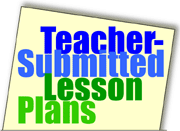Children's Books Teach Diversity, Respect


Note
Before preparing or distributing any food in the classroom, make sure you are aware of children's allergies or dietary restrictions, and caution children about choking hazards.
Subjects
- Arts & Humanities:
Literature
- Social Sciences:
Civics, Sociology
Grades
3-5
Brief Description
In this lesson, students compare themes, characters, settings, and other aspects of two children's books that teach diversity and respect.
Objectives
Students will
- discuss terms such as values, hero, courage, bravery, respect, apathy, hostility, segregation, humiliation, intimidation, prejudice, taunt, and equality;
- recognize that there are universal values;
- recognize the importance of those values in our society;
- work in groups to complete a graphic organizer;
- build upon prior knowledge to create a final project.
Keywords
character, values, hero, courage, tolerance, prejudice, citizenship, respect, dictionary, team, cooperative, group, graphic organizer, Venn diagram
Materials Needed
Lesson Plan
Before the lesson, read aloud to students The Brand New Kid and Teammates. (The library media specialist might have read those books to students in the weeks before doing the lesson.) Discuss keywords used in both books. Help students define those words in their own words or use a dictionary to look up definitions.
Begin the actual lesson by having students brainstorm vocabulary words reviewed in both books. Write those words on the board or a chart as students share them.
Divide students into small cooperative groups. Provide each group with a Venn diagram work sheet (see Materials Needed above for a link to possible forms). Ask students to use the form to compare and contrast the books. Allow students five to ten minutes to complete this activity.
Then call groups together. Provide time for groups to share what they talked about. Use student contributions to create a large Venn diagram on the board.
Follow up this lesson with critical-thinking activities that students can complete after the lesson:
- Write a short paragraph using the new vocabulary terms introduced in the lesson.
- Create an original fable to reflect any specific value covered in the lesson.
- Create a dictionary of keywords discussed; illustrate the definitions.
- Design a crest for the school, highlighting character education values.
Assessment
Students will participate in the brainstorming session, contribute in their groups to completing the assigned Venn diagram, and provide information to the class Venn diagram. Teachers can use an assessment rubric for evaluating group work.
Submitted By
Joanne E. Hughes, Covert Avenue Elementary School, Elmont, New York
Teachers have permission to copy this page for use in their classrooms.
Originally published 04/05/2002
Last updated 11/25/2008



To help us keep our Lesson Plan Database as current as possible, please e-mail us to report any links that are not working.




